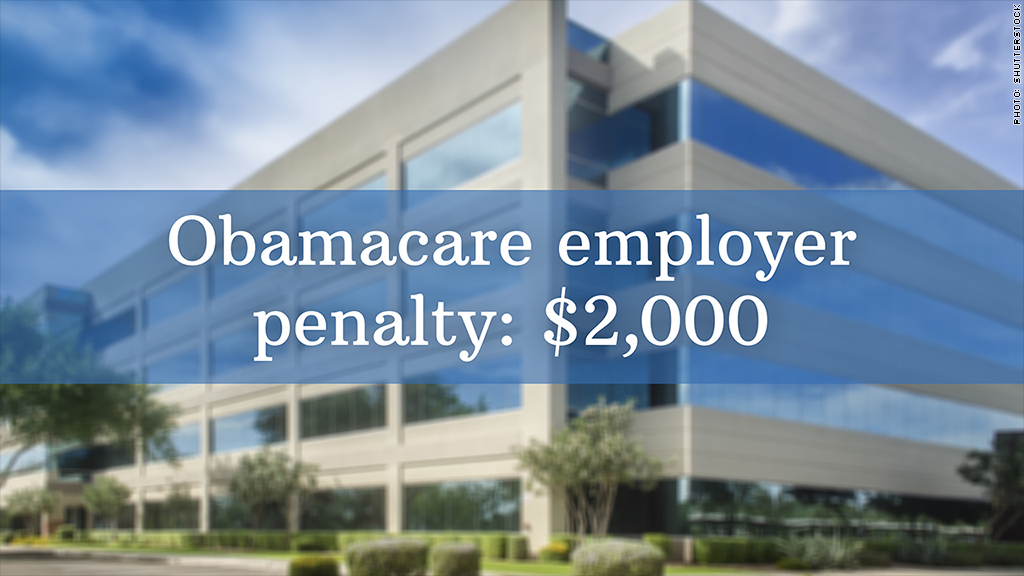
Many employers now have to comply with Obamacare.
Companies with more than 100 full-time workers must offer affordable health insurance to at least 70% of their staff. This "employer mandate" was supposed to take effect in 2014, but the Obama administration delayed it to this year.
And those that don't comply face hefty penalties.
Companies will be fined if they don't offer coverage and even just one of their workers gets subsidized insurance on an Obamacare individual exchange. For 2015, the fine is $174 a month times the number of full-time employees (minus 80 workers).
But that penalty is higher if the company offers insurance, but it's not considered affordable or comprehensive. In that case, the employer pays $261 a month for each employee who received subsidized coverage on an individual exchange.
Related: Obamacare tax surprise looming
Employer insurance offerings now have to pass two tests.
To be affordable, the plan's premiums can't cost a worker more than 9.56% of his income. This applies only to employee-only coverage since the health reform law does not consider the affordability of family coverage.
To be comprehensive, the policy must pay for at least 60% of the staff''s collective medical expenses and cover an array of essential health benefits, such as prescriptions and maternity care.
Some 94% percent of firms with 100 or more employees offered health benefits to at least some of their employees in 2014, according to the Kaiser/HRET Employer Health Benefits Survey.
But many, particularly companies with more low-wage workers, will have to make some changes to meet the Obamacare standards.
"Almost all large employers are having to tweak their benefits somewhat," said Larry Levitt, senior vice president at the Kaiser Family Foundation.
While not every employee opts to get insurance through their jobs, more are likely to sign up because they will have to pay a penalty if they remain uninsured. In 2015, those without insurance will pay the larger of $325 or 2% of income.
The burden becomes more onerous in 2016, when larger firms have to offer coverage to 95% of workers. That's also when the mandate kicks in for mid-sized businesses, with 50-99 employees.
Companies with fewer than 50 people on staff, which make up virtually all businesses, are not subject to the requirement.
Only 2% of the nation's firms are considered large, with another 2% defined as mid-sized.
A full-time employee is one who works at least 30 hours a week.


